The coronavirus pandemic triggered a worldwide mental-health crisis. This narrative ages almost as quickly as the virus itself but one forgets easily that the psychological minefield by returned migrants was looming long before. The pandemic is not the only test on the psychological immune system of returned migrants, which appears more robust than we would have guessed. When familiar sources of enjoyment evaporate after the homecoming, we cannot forget the real struggle these migrants go through.
According to the World Health Organization (WHO), mental health is “a state of well-being in which every individual realizes his or her own potential, can cope with normal stresses of life, can work productively and fruitfully and is able to make a contribution to her or his community” (WHO, 2004).
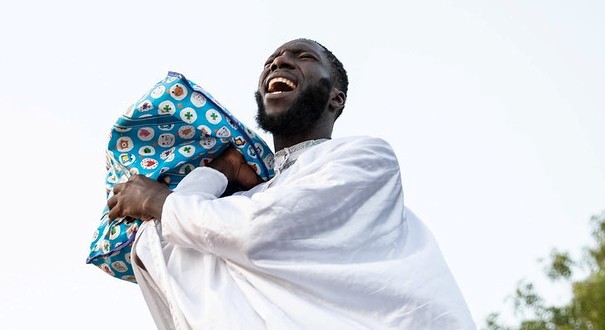
World Mental Health Day is one day that gives the world an opportunity to raise awareness on mental health issues and to mobilize efforts in support of mental health. Aimed at all stakeholders working on mental health issues to talk about their work, and what more needs to be done, its main objective is to make mental health care a reality for people worldwide. This article will show the reader how a Mental health and psychosocial support (MHPSS) approach is relevant for all the programs and projects from the International Organization for Migration (IOM) in West Africa.
Given its mission to uphold the dignity and human rights of migrants, IOM’s MHPSS approach, which lies in the fundamental interrelation of bio-psychological, socio-economic/socio-relational and cultural factors; is relevant for all its programs and interventions. The most recent IOM program being the awareness-raising campaign (AWR) called Migrants as Messengers (MaM) that is being rolled out in 7 countries in West Africa (Côte d’Ivoire, The Gambia, Guinea, Liberia, Nigeria, Senegal and Sierra Leone).
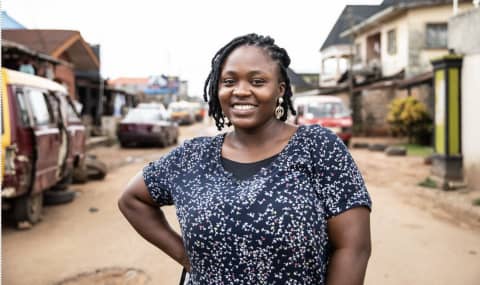
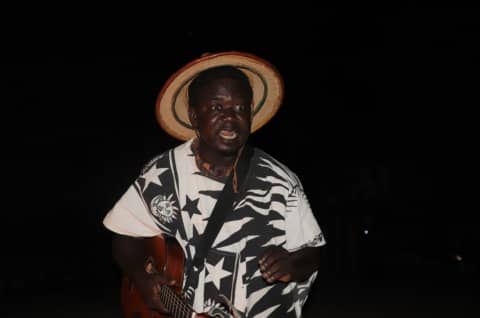
By widening the focus of an awareness-raising programme to the mental health and psychosocial wellbeing of the returned migrants involved as Volunteers, the MaM campaign aims at opening safe spaces for encounter and discussion between peers. These safe spaces should create an organic and reliable community of more than 300 Volunteers.
“More protected than the public spaces of active citizenship, these are settings in which returnees can deepen important exchanges on distress and resilience. Many of them shared for the first-time dramatic aspects of their journey and the challenges encountered upon return, finding among their peers listening, support and a mutual recognition of the value of their experience”, says Marilena Crosato – Community Engagement Officer at IOM.
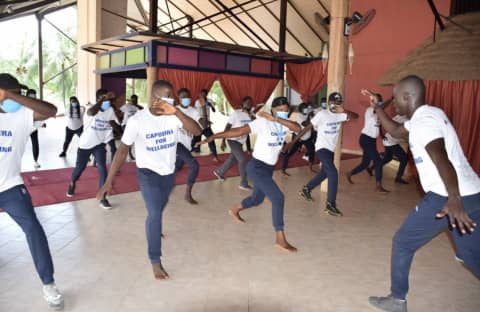

The MaM campaign challenges/innovates the MHPSS approach in 3 aspects: it reinforces the participatory approach to community engagement activity design and implementation; it accentuates the rooted importance of storytelling, and it makes peer communications, support and groups the new black, again.
Sharing stories of their journeys with their peers to create awareness of the astonishing resilience they exhibit in the face of the sudden changes, helps the Volunteers to find their place among the others in their community. In Senegal the MaM campaign uses a well-known African tradition like storytelling to assists the Volunteers to understand that migration has always been one of the main aspirations of human beings. They are accompanied by a psychologist and an experienced storyteller in African tales around a wood fire. The objective: guide them in the awareness process that will lead them to normalise their history or experience before sharing it with their peers.
One Volunteer expressed the positive impact of the activity as follows: “It was very good, the story of the vulture and the cow, it touched me so much. That’s exactly what happened to me with the smugglers. Tales really talk about life; you learn a lot from them. I want to use this to make people understand not to get carried away by beautiful words.”
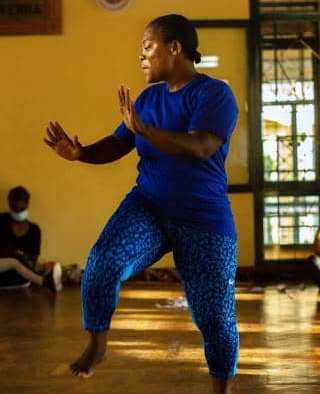
In this sense, the facilitation of peer support mechanisms by helping create connections, form a social, emotional, physical and tangible support network; can help returned migrants/Volunteers feel part of a group, overcome social isolation dynamics and build a bridge towards communities.
When one migrates, a separation from the trusted social environment like family comes into play. From spatial uncertainty comes temporal uncertainty. If we can’t know where we are safe, then we can’t know when we are safe. Fast forward to the homecoming. Like so many aspects of migration, the journey’s mental-health toll is not distributed evenly. The friends, the family and by extension the village exhibit very pronounced different forms of reactions. A possible response to combat the stigmatisation suffered upon return, is training returned migrants in learning how to express their emotions through various techniques like dance or art.
Successive research has shown that art-based support could be a strong tool for communication or storytelling about the culture and history of people, their world view about life as well as their individual experience. As progress is made towards improving and promoting safe migration principles and practices, art-based support becomes an even more important tool for facilitating communication of migrants’ experience and expression of emotions and thoughts which are difficult to put in words.
“Sometimes words cannot express what we passed through in Libya but Speaking Through Arts has given us another tool to express our experiences through paintings without fear of discrimination”, says Friday Queeneth a MaM Volunteer based in Edo State, Nigeria. She benefited from this innovative awareness raising approach. The activity encompasses not only the migrant’s experience told through images, but it is also an empowerment strategy where participants could learn the skill of empathy and sympathy.
MaM activities are developed with the communities of the migrants. The psychosocial well-being of migrants is indeed strongly linked to factors that are strictly interrelated with the concept of community. These include a sense of belonging and identity, exploring social roles, experiencing cultural readaptation, or emphasising the dynamic between tradition and change. Solomon Correa, a dance teacher and member of the Supportive Activists Foundation in The Gambia worked with some of the returned migrants. “Dance gives them the sense of community where different people share their emotions together. It’s therapy. After dance, they can feel ease of their burdens and the pain they are going through” he says. To this end, the MaM campaign implements not only traditional but also creative approaches in their awareness-raising activities. Dance, as mentioned before, is a powerful advocacy tool, which can inspire young people, interest the more sceptical and promote debate on migration, while improving the psychological and emotional state of the messengers themselves.
“I saw the capoeira (a Brazilian artform that combines dance and martial art) activity as an innovative and sustainable source of psychosocial support for the returnees, through which their emotional and physical wellbeing can enjoy improvement”, says Muhammed Touray, National Health Promotion Officer at IOM The Gambia.
In Côte d’Ivoire, the MaM campaign organised a workshop on body acceptance. Eight female returned migrants will not only benefit from the training; they will also show three narrative dance performances, based on the stories of their migratory journeys.
“By participating every Saturday in these body acceptance classes, I give myself up for an afternoon,” says Aicha Konaté, a MaM Volunteer from Côte d’Ivoire. “I became aware of the weight of emotions and the importance of releasing them. I want to learn to forgive myself sincerely and to free my heart from all the resentment, anger and sadness that I still hold as a result of the difficulties I went through in Tunisia and Libya.”
The relationship between body and mind can be outright engaged in this journey where both are exposed, have suffered and are overcoming the invisible barrier between them. This comprehensive approach can help them link a new old part of themselves and ratify their new acquired self-awareness.
For many years the reality for returned migrants in West Africa has been this one: when it comes to expressing mental health issues, one must shy away to avoid stigmatisation. Sometimes when they make their voices heard, their communities remain tone deaf for a call for help that goes beyond the material things. It is a call for help on the psychosocial well-being of individuals and groups, after a potential trauma. For returned migrants, the state of well-being that characterizes good mental health is challenged by factors that are inherent to the very definition of mental health and the circumstances of some migration paths.
Mental health specialists often talk about the five core elements of intervention—calming, self-efficacy, connectedness, hope, and a sense of safety—and those apply now as much as ever. At an organizational level, the response will depend on extensive screening, which is to the mental-health side of the pandemic roughly what testing is to the physical-health side.
We need to remember these hard-won lessons: migrants are not passive victims of changes affecting their familiar environments, but they are active stewards of their own well-being. This knowledge should empower us to make the changes our societies may require, even as we support returned migrants and communities that have been hit hardest but showed the most resilience. Every migrant deserves a place to come home to.
This article is written by HOORNAERT Tijs Magagi